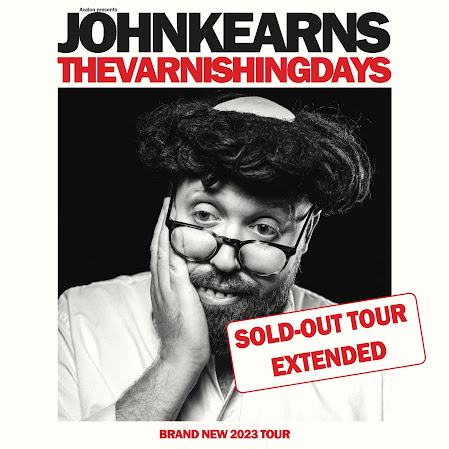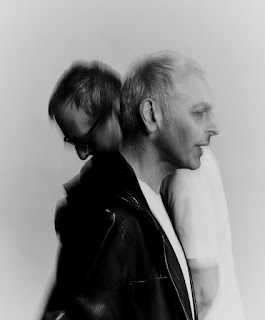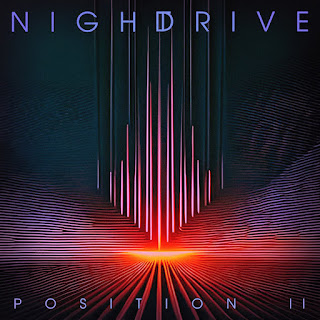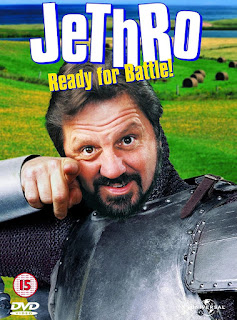John Kearns 'The Varnishing Days' Review - 24th March, Hyde Park Book Club, Leeds
John Kearns 'The Varnishing Days' Review at Hyde Park Book Club, Leeds - Loveable Oddball's New Show is Whimsical, Pensive Genius
It seems to have been somewhat of a trend with me in recent times that the people I'm most excited to see on the new series of Taskmaster are the people I'm least familiar with. John Kearns is perhaps the perfect example. Some people upon initial googling may have found his highly abstract character comedy incongruous with the very timid, eccentric, loveable portrayal he put across on that show, but I absolutely loved it. The one thing I knew with any certainty was that an eight year old five minute YouTube clip wasn't enough, I needed more. Luckily for me, as any savvy comedian would after becoming a fan favourite on one of the biggest comedy shows in the country, John announced his new stand-up tour 'The Varnishing Days' soon after, with a date scheduled at the Hyde Park Book Club in Leeds. So with that, I rocked up on a rainy Friday night, excited to see this comedy titan in action. After all, winning the Edinburgh Newcomer and Best Show award in two consecutive years is no mean feat. I was sure this would be nothing short of incredible.
The venue itself had quite a weird setup: hipster bar and library upstairs, comedy club downstairs. Quite an odd juxtaposition, and so I suppose in a sense it's weirdly fitting. It did strike me as a little odd that John was playing a 70-seater comedy club after having done a residency at the Soho Theatre in February, I'd have thought he'd at least be at City Varieties by now. Then again, I'm certainly not complaining, because in actuality as I'll explain in a bit, the intimacy of the setting gave the show a whole other dynamic than perhaps it wouldn't have in a 500 capacity venue, but I'm getting ahead of myself. After about 40 minutes of music we were informed was the tour manager's allotment playlist, up came the support act, Simon Lomas, and, in-keeping with the other support acts I'd seen like Pete Brush or Nick Doody, Simon was a pleasant surprise, albeit a rather strange one. His act mainly consisted of deadpan one-liners, put forward in a quite tentative, nervous delivery, with the stage presence of an awkward teenager, and I mean that in a good way. As he's said himself before, when comics like him are deadpan, there's even more pressure for the jokes to hit, and luckily for us, they certainly do. Highlights include quips on the logistics of glasses sharing, the misconceptions of the adoption process, his dad's unorthodox use of traffic cones, and how to best navigate a vegan barbeque. There are of course many others, but all delivered in a way where, as funny as they might be, the awkward pauses in between phrases make you a little unsure what you're supposed to be laughing at. There were other surprises though, particularly his crowd work, where his quick wit is complemented by a welcome savagery. He entered the stage facing sideways to the right, raising and tilting the microphone at an awkward high angle, a bit he very humorously sticks to even when ditching the mic stand. His reason? "I've looked at the people on the left, and you're all cunts." Fair enough. The war of wits he later engages in with a member of the front row is similarly brutal and hilarious, his knack for wordplay coming in incredibly useful. It may have only been twenty minutes, and granted the oddity of it took a little bit of getting used to, but I would happily watch him for a further forty.
But then it was time for the main man himself. The crowd erupted in applause as the sound of 'You Gotta Get a Gimmick' from the ‘Gypsy’ musical came through the speakers, and John made his way to the stage, a rather apt choice for the evening ahead. A detail I'd like to draw attention to is that John made the choice to don his classic wig and teeth only after entering the stage. You might think it’s insignificant, but in hindsight it seemed a very interesting choice in the context of the show, where he allows us to peer behind the curtain much more than I would’ve expected, all to great effect. It’s laughs from the word “go” though, as John immediately comments on the effect appearing on Taskmaster has had on his career, and how some people who bought tickets as a result might be looking at their ticket confused, but as he says “this is it”. As he cleverly quips “the ticket sales, they go up, but the laughs, they go down.” In this same vein he comments on how now he feels the same way Neil Diamond might feel performing to people who only know ‘Sweet Caroline’: “I’m grateful, but there’s more to me.” As far as John’s concerned, us newbies have some catching up to do, which is fair enough, but given his reception, I’m guessing people caught up quite quickly. I don’t want to put across the impression that this routine was bitter though, far from it. In fact John seems to have a lot of fun with some of the more tongue in cheek material here, which this definitely exemplifies. Also quickly in the intro, in a hilarious turn of events, John seems to have similar amounts of fun having a cheeky go at Simon, as he explains how he was arguably just as confused as we were by his act, particularly his sideways facing antics: “I think he’s brilliant, that’s why he’s here, but I pay him to at least fucking look at you.” There are other examples of such ribbing sprinkled throughout the show too, all in good fun.
John tells us though that since his success, he’s looking to finally leave the Hyde Park Book Club, as his eyes are now dead set on the world of TV, leading into a particularly hilarious and awkward diatribe about his time on Sunday Brunch, where Tim Lovejoy asks questions about his hobbies best suited to a six year old, and how funnily enough, the one time John’s on, the chef keeps a particularly keen eye on his eggs. Following that, in what may have been the biggest laugh of the night for me, John discusses how easy it would be to host The One Show, “everyone’s done it” after all. He recounts a particularly ridiculous story where they filmed a 200 year old tortoise, after which host Jermaine Jenas pondered: “imagine what he’s seen”, to which John responds with the bluntly obvious: “he’s seen fucking nothing.” That alone would’ve been hysterical, but the way John augments this with the tortoise’s hypothetical journeys through time, delivered with a sense of phoney rage was the icing on the cake, and made me laugh so hard, I don’t mind saying I had chest pains for a good few minutes afterwards. Genius. Equally genius is John’s crowd work, and in that regard it seems I picked a good night. In between John’s various musings, he would pose a question to the crowd in order to transition from one routine to the next. A smart move, but one that was seemingly derailed by the audience on this occasion. One person to the left of the audience seemed awkwardly tight-lipped and nervous, while one on the right was more than willing to play ball, even a whole tennis match if you will. An example would be when he posed the question of how to describe ‘The Snowman’ by Raymond Briggs: the person on the left gave a comparatively elaborate and florid description, made all the funnier by the fact that the person prior simply replied with “flying snowman.” As you can imagine, this dichotomy, as much as it meant that the transitions weren’t as smooth as they could’ve been, essentially gave John a laundry list of wry quips to work with on a silver platter, and I was all the gladder for it.
As I alluded to earlier though, thematically, this is a bit of a different show for John. While his trademark absurdist style is here in spots, and is obviously brilliant, like with talks about the sense of swagger provided by a tea towel, or the social unacceptability of running through art galleries, this show sees John removing some of the bricks from the fourth wall he forged throughout his career, and giving us a glimpse into his life, with a unique philosophical edge. Some character comics may find themselves floundering in a more personal forum, but not John. Don’t get me wrong, a lot of it is characterised by the same sense of eccentricity that characterises his other material, but also possesses an undercurrent of tragedy that makes it incredibly compelling. The main thing on John’s mind is the recent upbringing of his child, and as many new parents I’m sure will tell you, it does weird things to your brain. John’s genius lies in his ability to take the everyday occurrences in such a chaotic time and turn them into brilliant monologues and anecdotes centred around a striking, often tragic tableau, inducing various philosophical musings. Such an example would be the story of when John’s son watched him showering and proceeded to burst out laughing. This then morphs into a brilliantly absurd hypothetical where watching your dad wash becomes a time honoured tradition, and sons watch their father's skin wrinkle and contort year by year, but at its heart is a tragic metaphor for the ageing process. Similar things could be said about many of his other interactions he describes with his son. Bringing back the Snowman example, he uses that book’s last page to wittily explain how he often shouts life advice at the back of his son’s head so “maybe he thinks it’s god”, leading John to recount many of his own, decidedly Beano-esque childhood experiences, including going to see Titanic and Austin Powers with his grandparents, which he amusingly states “probably explains why you’re seeing what you are.” Another notable routine revolves around a confrontation involving his son and a wine bottle, which comically ends in what other way, but with his child dropping the bottle and shitting his pants. This seems much to John’s chagrin, who “doesn’t want his first memory to be me wiping his arse” rather than life advice. This would work brilliantly as a piece of classic observational stand up, but John gives it that extra layer of offbeat charm to take it to the next level.
Funnily enough, John also touches on a similar idea, as, in keeping with the show’s meta nature, the very concept of his stage persona comes under the microscope. Following an admittedly great routine about the apparently absurd nature of bin bags, John then recalls an interaction with a friend of his. One thing that seemed to throw John for a bit of a loop was the friend’s assertion that he doesn’t need the wig and teeth, because “he’s funny as it is”, and suggests that he “does a show, but with bits all like the binbag bit.” As is a trend with these parts of his act, the sense of droll, dry wit and sarcasm could’ve carried it easily by itself, but of course, John never takes the easy laugh. The sarcasm remains initially as John explains how “if I had more bits like that, I’d do them”, framing the bin bag routine as his bizarro equivalent to other iconic observational stuff, his ticket to the mainstream vis a vis Peter Kay’s garlic bread, as well as ingeniously reworking the Neil Diamond reference from earlier. As he readily acknowledges: “you’ve got to have a hit”. This perspective too is also characterised by a distinct sense of earnesty, as he rather beautifully surmises his own situation: “you might not be for everyone, but you do the best with what you’ve got.” He also comically rebuts people questioning his need for a costume, as he sharply poses the question “do they not realise this is a choice?” It’s undoubtedly a very clever piece of commentary, but one that I see also comes from the same school of thought as the former. In essence, if putting a wig and teeth on makes people laugh, why stop? Personally, I can kind of agree with his friend in a sense. If this show proves anything, it’s that John could produce a brilliant show off the strength of his material with ease, wig or no wig. That said, at the same time, I’m hard pressed to disagree with his sentiment.
Arguably some of the most compelling moments in the evening though, are when the bizarre and earnestly personal aspects of his act coalesce, most notably, in the few flights of fantasy John takes us on at some crucial junctures. These come in the form of fanciful monologues that essentially function as daydreams, often accompanied by music, that John masterfully crafts as segues in and out of his routines, and similar to the “watch your dad wash” routine, is underpinned by a sense of yearning and melancholy. The first comes with John describing the effect that a child can have on a marriage. Following an embarrassing meeting with his old personal trainer, in which his notebook remained firmly closed (“this looks way worse written down”), after returning to his flat, his wife apparently couldn’t run out fast enough. The clear stress affecting them both leads John to envision them as duo trapeze artists, as he goes around humorously goading the other circus performers for their career choices. It’s a very enjoyable tangent. Although with the dramatic, desperate way that John belts out his narrations at the climactic points of their trapeze performance, that sense of yearning for something more from life, that moment of true euphoria and peace, hits very hard indeed. The other one of the show’s most poignant moments comes by virtue of a plate of boiled potatoes. He initially begins by brilliantly deconstructing Marco Pierre White’s overpriced Masterclass course, pointing out all facets of its ridiculousness and wealth of hilariously basic information. To add to this, the ending tableau is delivered perfectly: “Marco said “a labourer uses their hands, an architect uses their hands and brain, an artist uses their hands, brain, and heart.” Pan down, a plate of boiled potatoes.” But the way John follows it is just as brilliant, taking us into the world of his own family run restaurant in an alternate universe, sitting in his special seat and looking at the ceiling with reminders of balloons and banners of parties gone by. John certainly isn’t afraid to get meta though, and it provides some of the routine's funniest moments, with his admission that “the waiters hate wearing the wig”, while also portraying the image of him as the celebrity host, meeting and greeting the tables, except unfortunately because of his cult status, no-one has a clue who he is. The focus then shifts to his son, now a master potato chef, with a recipe passed down from generations, as the image of a wine bottle ingeniously transports us back to the culmination of the debacle discussed earlier. Yet again, what starts as a vivid exercise in whimsy morphs into a poignant metaphor for the passage of time, showing John’s desperate hope for his son’s successful life. These sections show that John is not only a brilliant comedian, but also an amazing storyteller. As the icing on the cake, as I alluded to earlier, the intimacy of the venue did wonders here, making me feel like a child gathered around the proverbial campfire, enraptured by my avuncular uncle’s tales of adrenaline and nostalgia. It was incredible.
The show then ends soon after, and while by John’s own admission, it maybe drags on a little, it is still entertaining, particularly the story of an odd encounter at a Premier Inn, and his charm easily carries it to a satisfying conclusion. So, as he exited the stage and the lights went up, I was utterly lost for words. Amused, amazed, enthralled, and thoroughly pleased. Well done Mr. Kearns. To finish, I’ll say this: I like to think I’ve got a pretty good track record for the stand up shows I’ve seen: Dave Gorman’s ‘With Great PowerPoint Comes Great ResponsibilityPoint’. Jamali Maddix’s ‘King Crud’, Mark Watson’s ‘This Can’t Be It?’, and I’m happy to say John Kearns ‘The Varnishing Days’ keeps up my flawless record very comfortably. I’ve heard people compare his onstage persona to that of the classic narrative motif of a sad clown, and to a certain extent, I agree. He plays that role incredibly well, and it results in some great comedy, but the moments that you see behind the red nose and face paint, so to speak, and are given a rare glimpse into the mind of the person behind the costume, those are the most compelling for my money. To reiterate, he’s a master comedian, a fantastic storyteller, and nothing short of a genius, and I urge you to see him. Will he be packing out arenas any time soon? Maybe not. Does he deserve to? Absolutely.




Comments
Post a Comment